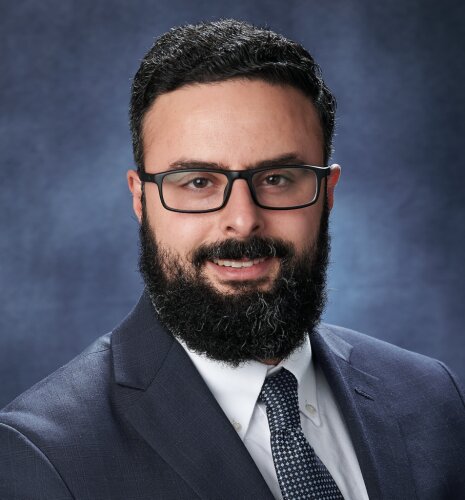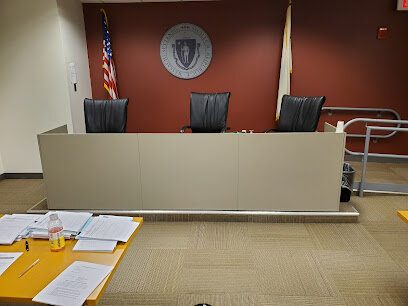Best Juvenile Law Lawyers in Connecticut
Share your needs with us, get contacted by law firms.
Free. Takes 2 min.
Or refine your search by selecting a city:
List of the best lawyers in Connecticut, United States

About Juvenile Law in Connecticut, United States
Juvenile Law in Connecticut covers legal matters involving individuals who are under the age of 18. The Connecticut juvenile system is designed to focus on rehabilitation rather than punishment, with the aim of helping young people avoid repeat offenses and grow into responsible adults. This area of law includes cases involving delinquency, truancy, abused or neglected children, and minors in need of supervision or special services. The court proceedings for juveniles are typically confidential, and juveniles are provided with certain rights and protections tailored to their age and developmental stage.
Why You May Need a Lawyer
There are several situations where seeking the assistance of a lawyer experienced in Connecticut Juvenile Law can be essential. Some common reasons include:
- Your child has been accused of committing a crime or delinquent act.
- You are facing Department of Children and Families (DCF) intervention regarding allegations of abuse or neglect.
- Your family is involved in issues related to truancy or educational neglect.
- A minor seeks emancipation or needs legal assistance with family or school matters.
- You need help understanding your rights and responsibilities during juvenile court proceedings.
- Your child is involved in cases related to custody, guardianship, or foster care.
An attorney can help guide you through the juvenile justice system, advocate for the best interests of the child, and ensure that legal procedures and rights are protected.
Local Laws Overview
Connecticut juvenile law is governed by statutes, rules, and procedures that are distinct from the adult legal system. Key aspects include:
- The age of juvenile jurisdiction is generally under 18. For certain serious offenses, a juvenile may be transferred to adult court.
- The Department of Children and Families (DCF) plays a significant role in cases involving abuse, neglect, or families with service needs.
- Juvenile proceedings are not open to the public and records are confidential, except in rare circumstances involving serious crimes.
- Juvenile courts focus on rehabilitation, often providing opportunities for diversion and supervised probation rather than incarceration.
- Children have the right to legal representation in juvenile court. In some cases, the court will appoint an attorney if the family cannot afford one.
- Connecticut has specific laws regarding truancy, school attendance, and runaway cases (Families with Service Needs).
- Victims and families are given opportunities to participate in court processes as appropriate.
Frequently Asked Questions
What is considered a juvenile in Connecticut?
In Connecticut, a juvenile generally refers to any person under the age of 18. Certain cases involving older minors may be transferred to adult court depending on the nature of the alleged offense.
What happens when a juvenile is arrested?
When a juvenile is arrested in Connecticut, they are typically referred to juvenile court. Law enforcement may also refer the case to a diversionary program or release the child into parental supervision, depending on the severity of the offense.
Will my child's juvenile record be public?
Juvenile court records in Connecticut are confidential and not accessible to the public except in rare cases involving serious violent crimes or if the court orders records to be unsealed.
Can a juvenile be tried as an adult in Connecticut?
Yes. For certain serious offenses such as serious felonies or violent crimes, a juvenile may be transferred to adult court where they can face adult penalties.
What are the possible outcomes for a juvenile offender?
Outcomes vary based on the offense and circumstances but may include dismissal, community service, probation, counseling, diversion programs, or in serious cases, commitment to the Department of Children and Families.
What rights does my child have during juvenile proceedings?
Juveniles have many of the same constitutional rights as adults, including the right to notice of charges, the right to counsel, the right to confront witnesses, and the right to remain silent.
How does the Department of Children and Families become involved?
DCF may intervene if there are allegations of abuse, neglect, or when a family is identified as needing special services due to truancy, behavioral issues, or runaway situations.
Can parents attend juvenile court proceedings?
Yes. Parents or guardians are generally required to attend all juvenile court proceedings involving their child.
What is a Families With Service Needs (FWSN) petition?
A FWSN petition can be filed for juveniles who are truant, run away, show defiant or ungovernable behavior, or are beyond parental control, requesting court intervention to provide appropriate services.
How can I get my child's juvenile record expunged?
Connecticut allows for the erasure of certain juvenile records after a specified period if the individual has not committed additional offenses. Consulting with a lawyer is recommended to guide you through the expungement process.
Additional Resources
Several organizations and government bodies offer information and assistance related to Juvenile Law in Connecticut:
- Connecticut Judicial Branch - Juvenile Matters Division
- Department of Children and Families (DCF)
- Office of the Child Advocate
- Connecticut Legal Services
- Connecticut Network for Legal Aid
- Statewide Bar Associations for attorney referrals
- School-based legal and counseling services
Next Steps
If you or your child are facing a juvenile law issue in Connecticut, consider these steps:
- Contact a lawyer who specializes in Juvenile Law to discuss your options and understand your rights.
- Gather all relevant documents, such as court notices, DCF reports, and school records.
- Attend all scheduled court hearings or meetings, and ask questions to ensure you understand the process.
- Utilize local resources and support systems, such as legal aid organizations or community groups.
- Stay informed about your child's rights and the services available to help prevent future legal issues.
Taking proactive steps and seeking knowledgeable guidance can make a significant difference in the outcome of juvenile law matters. If you are unsure where to begin, reach out to a local legal professional for a confidential consultation.
Lawzana helps you find the best lawyers and law firms in Connecticut through a curated and pre-screened list of qualified legal professionals. Our platform offers rankings and detailed profiles of attorneys and law firms, allowing you to compare based on practice areas, including Juvenile Law, experience, and client feedback.
Each profile includes a description of the firm's areas of practice, client reviews, team members and partners, year of establishment, spoken languages, office locations, contact information, social media presence, and any published articles or resources. Most firms on our platform speak English and are experienced in both local and international legal matters.
Get a quote from top-rated law firms in Connecticut, United States — quickly, securely, and without unnecessary hassle.
Disclaimer:
The information provided on this page is for general informational purposes only and does not constitute legal advice. While we strive to ensure the accuracy and relevance of the content, legal information may change over time, and interpretations of the law can vary. You should always consult with a qualified legal professional for advice specific to your situation.
We disclaim all liability for actions taken or not taken based on the content of this page. If you believe any information is incorrect or outdated, please contact us, and we will review and update it where appropriate.
Browse juvenile law law firms by city in Connecticut
Refine your search by selecting a city.









